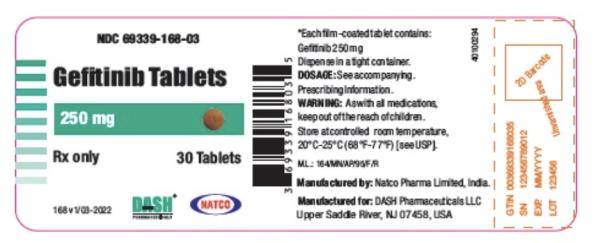Gefitinib Interactions
There are 249 drugs known to interact with gefitinib, along with 6 disease interactions, and 1 alcohol/food interaction. Of the total drug interactions, 38 are major, 205 are moderate, and 6 are minor.
- View all 249 medications that may interact with gefitinib
- View gefitinib alcohol/food interactions (1)
- View gefitinib disease interactions (6)
Most frequently checked interactions
View interaction reports for gefitinib and the medicines listed below.
- Abraxane (paclitaxel protein-bound)
- Acetylsalicylic Acid (aspirin)
- Activated Charcoal (charcoal)
- Adrenalin (epinephrine)
- Adriamycin (doxorubicin)
- Amoxil (amoxicillin)
- Aspir 81 (aspirin)
- Aspir-Low (aspirin)
- Aspirin Low Strength (aspirin)
- Atorvaliq (atorvastatin)
- Augmentin (amoxicillin / clavulanate)
- Calcium 600 D (calcium / vitamin d)
- Calpol Infant (acetaminophen)
- Caltrate (calcium carbonate)
- Caltrate 600+D (calcium / vitamin d)
- Cataflam (diclofenac)
- Celebrex (celecoxib)
- Cipro (ciprofloxacin)
- Clexane (enoxaparin)
- Coenzyme Q10 (ubiquinone)
- Dextrose (glucose)
- Diltiazem Hydrochloride SR (diltiazem)
- Metoprolol Succinate ER (metoprolol)
- Metoprolol Tartrate (metoprolol)
- Paracetamol (acetaminophen)
- Valproate Sodium (valproic acid)
- Vitamin B12 (cyanocobalamin)
- Vitamin B6 (pyridoxine)
- Vitamin D3 (cholecalciferol)
- Vitamin K (phytonadione)
Gefitinib alcohol/food interactions
There is 1 alcohol/food interaction with gefitinib.
Gefitinib disease interactions
There are 6 disease interactions with gefitinib which include:
- dermatologic toxicities
- GI disorders
- ocular disorders
- pulmonary toxicity
- liver disease
- renal dysfunction
More about gefitinib
- gefitinib consumer information
- Compare alternatives
- Pricing & coupons
- Reviews (8)
- Drug images
- Side effects
- Dosage information
- During pregnancy
- Drug class: EGFR inhibitors
- Breastfeeding
- En español
Related treatment guides
Drug Interaction Classification
| Highly clinically significant. Avoid combinations; the risk of the interaction outweighs the benefit. | |
| Moderately clinically significant. Usually avoid combinations; use it only under special circumstances. | |
| Minimally clinically significant. Minimize risk; assess risk and consider an alternative drug, take steps to circumvent the interaction risk and/or institute a monitoring plan. | |
| No interaction information available. |
See also:
Further information
Always consult your healthcare provider to ensure the information displayed on this page applies to your personal circumstances.


